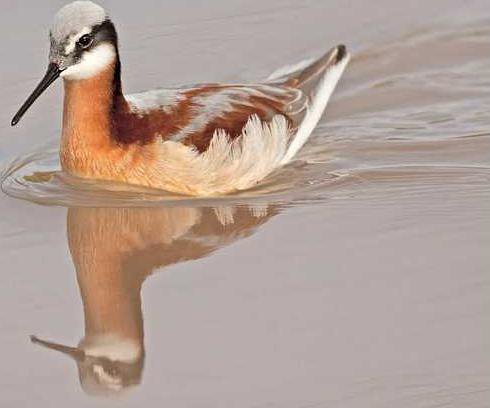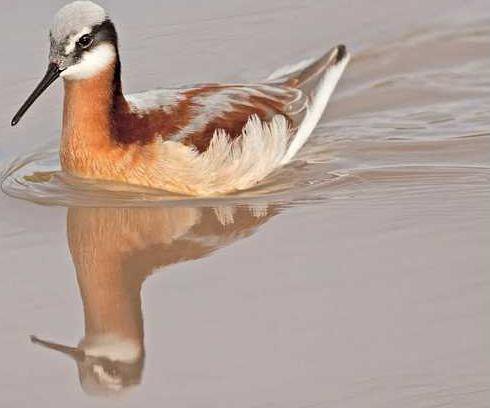I hope this is the start of something very, very good! We finally got some moisture-- not nearly enough to restore our beloved marsh, but a start is most welcome!
I have driven through the Bottoms several times lately. The "dabs" of water are holding a few shore birds, and there are lots of reptiles and critters out and about.
One of my very favorite shore birds is the Wilson's phalarope. These are beautiful smaller birds and have some very unique characteristics. Most of the other phalarope's spend their time at sea. These birds migrate through Kansas in spring and fall. A few will even stick around to breed and raise young at Quivira and the Bottoms. They are unusual in two aspects -- the females are much more colorful than the males, and when they are feeding in the shallow water, they go in circles to stir up insects. Getting to see flocks of hundreds of birds all circling around for their dinner is a memorable event in our marsh. I wish I had some way to show you the video. It is a terrific event.
On another note-- I got called for a couple of young birds on the ground where people were concerned because they could approach them and they wouldn't fly. This vulnerable phase of young birds lives is a very real situation-- and humans shouldn't interfere. After stepping away for about 10 minutes, we saw the parent bird come feed that youngster and encourage it to fly or hide in some bushes. I remember some young Mississippi Kites last year that spent almost a week on the ground close to the tree where the nest was. The parents fed them very precisely. Humans make poor caretakers without some special education and commitment to a species or a special situation. It is actually illegal to raise wild animals. There was a case where a deputy sheriff got in trouble for raising a "abandoned" white-tailed deer fawn. Talk to the game wardens and biologists if you encounter these situations.
Our marsh is on the rebound!
Doc Witt is a retired physician and wildlife photographer.
How about those phalaropes!
Dr. Dan Witt





